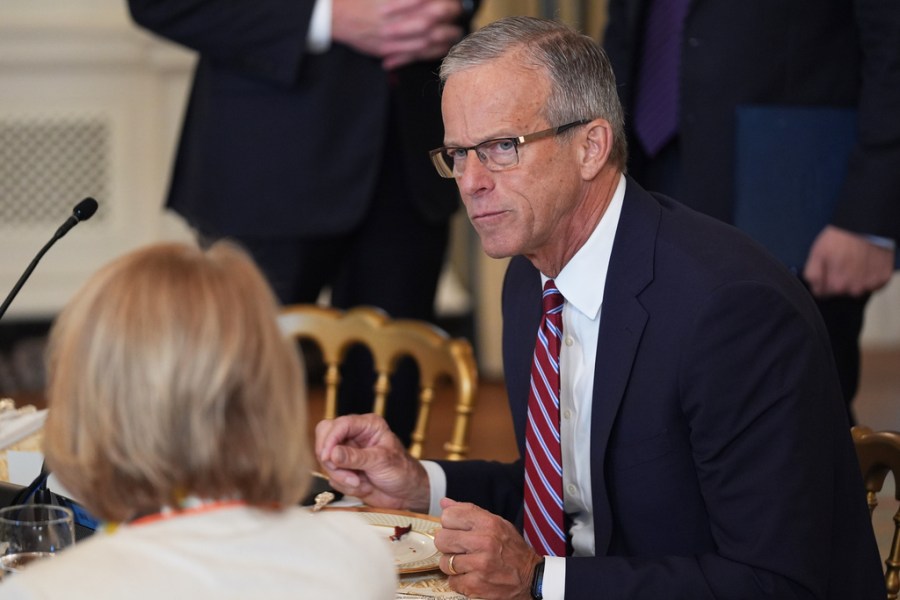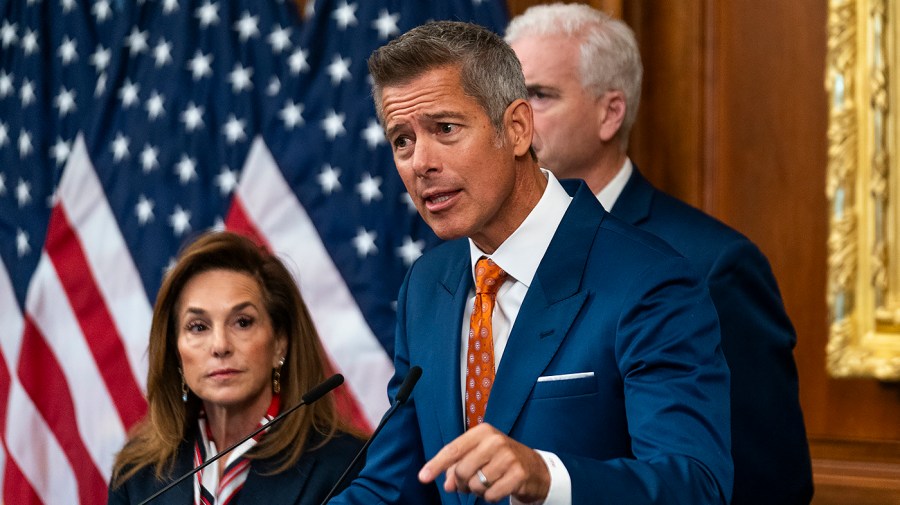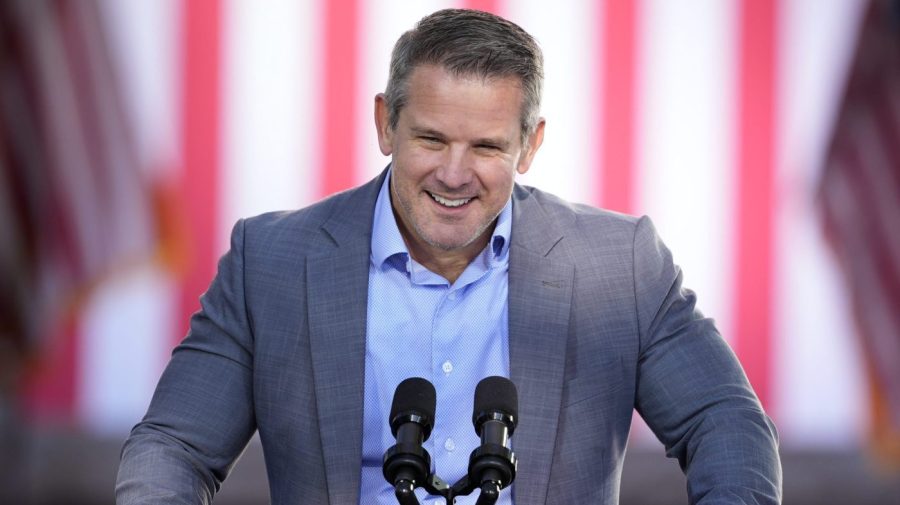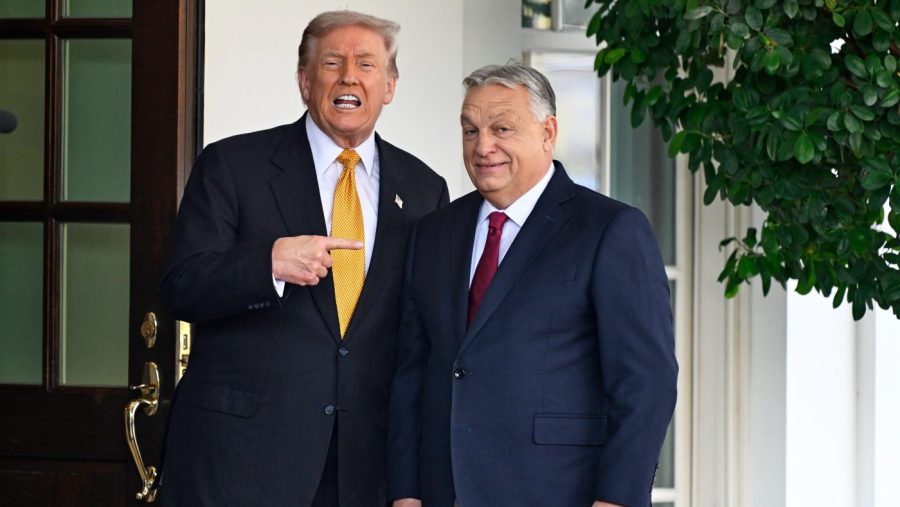“TERMINATE THE FILIBUSTER NOW … END THE RIDICULOUS SHUTDOWN IMMEDIATELY,” President Trump wrote on Truth Social.
And, also in capital letters, he explained why: “AND THEN, MOST IMPORTANTLY, PASS EVERY WONDERFUL REPUBLICAN POLICY THAT WE HAVE DREAMT OF, FOR YEARS.”
You can make your own list of what “wonderful Republican policy” on guns, abortion, tariffs, taxes, use of the military, or immigration might become law if a Senate majority, like the House of Representatives, could pass any Trump proposal. The president’s policies would roar through Congress like a freight train.
Make a second list, too — of the policies that you’d see under President Gavin Newsom or President Alexandria Ocasio-Cortez when power shifts, as it inevitably does, in America’s two-party system: D.C. statehood, gun bans, court-packing, government-run health care, and the end of state right-to-work laws.
Instead, Senate rules require 60 senators to vote to end debate before most legislation can pass. This is the Senate’s best-known tradition, described in the movie “Mr. Smith Goes to Washington” as “Democracy’s finest show,” each senator’s “right to talk [their] head off” until they come to a conclusion.
That is why we have a United States Senate, a forum that forces senators to come to agreement on controversial issues in a way that most of them can vote for and most Americans can accept. Alexis de Tocqueville, the Frenchman who wandered through our country in 1831 and 1832 and who wrote the best book yet on “Democracy in America,” warned of two great dangers for our future: First, Russia, and second, the tyranny of the majority.
Ending the filibuster would unleash that tyranny of the majority to steamroll the rights of the minority.
Ironically, even though it is their only hope to block his proposals, Democrats are Trump’s allies in ending the filibuster. The Democrats ran two centrist senators, Arizona’s Kyrsten Sinema and West Virginia’s Joe Manchin, out of the party and out of the Senate for joining with Republicans to block efforts to end the filibuster. When Barack Obama and Joe Biden were president, they urged ending the filibuster although as senators they had opposed ending it — with then-Sen. Biden calling it a “naked power grab.”
Most Republicans support the filibuster because they remember when Democrats had 60 senators, Obama was president, Republican votes didn’t matter, and Democrats held hands and all jumped off the cliff together to enact ObamaCare and other partisan legislation.
In fact, if you’re trying to understand why ObamaCare today is in constant need of repair through massive infusions of taxpayer dollars simply to function, you’ll find your explanation by looking back at the entirely partisan way it was written and passed.
Republicans also remember the wisdom of their most revered Supreme Court justice, Antonin Scalia, who said: “Every tin horn dictator in the world today, every president for life, has a Bill of Rights. That’s not what makes us free. … What has made us free is our Constitution.” That is, the separation of powers, the Constitution’s framework of checks and balances among branches of the federal government. The filibuster is a check on the passions of the president, the politicians and the people.
One might ask, if we don’t end the filibuster, how will we stop future shutdowns? Simple: Stop paying salaries and traveling-home expenses for members of Congress until the government reopens. That should solve the problem within days.
The Senate needs reform to restore its reputation as the world’s greatest deliberative body but it doesn’t need a change of rules; it needs a change of behavior. And the behavior to change first is for senators to stop blocking each other’s amendments. If you’re against it, vote no. Why stop the entire body from considering an amendment? Why join the Grand Ole Opry if you don’t want to sing?
Senate Majority Leader John Thune (R-S.D.) has offered two reasons not to end the filibuster.
“The votes aren’t there,” he said.
His second reason is better.
“Bad idea,” Thune said.
Lamar Alexander was a Republican senator from Tennessee from 2003-2021 and chairman of the Senate Republican Conference from 2007- 2011. He is author of the soon-to-be-published memoir “The Education of a Senator: From JFK to Trump.”














